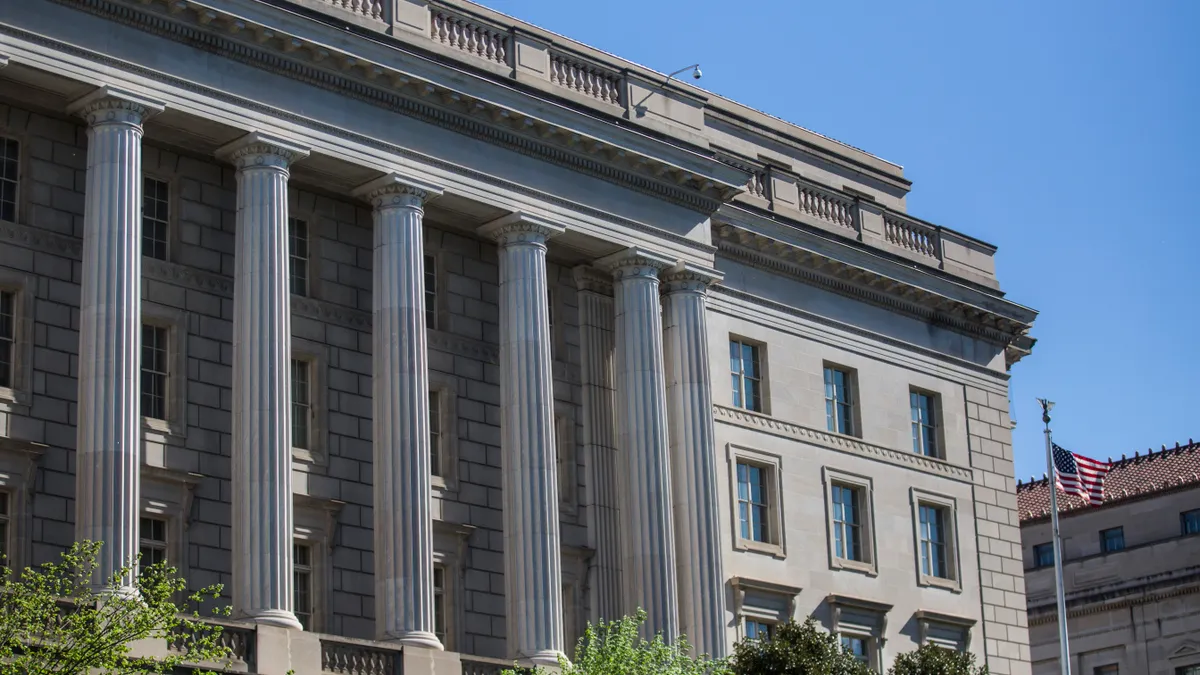Dive Brief:
- The IRS underreports wait times for taxpayers who phone its help lines, claiming that the average time on hold is three minutes while excluding the 17-minute average wait endured by about one-third of callers, the Treasury Inspector General for Tax Administration said.
- IRS management disagreed with a TIGTA recommendation that it report average wait times for all telephone help lines, TIGTA said. The agency also disagreed with a recommendation that it reveal wait times on all lines for the full fiscal year, rather than just for the annual tax filing season from Jan. 1 to April 15.
- “Transparency in reporting the taxpayer experience is critical for the IRS to maintain public confidence and compliance with the tax laws,” TIGTA said in a report. “Taxpayers have the right to receive prompt, courteous and professional assistance in their dealings with the IRS.”
Dive Insight:
For years taxpayer advocates and lawmakers from both parties have called on the IRS to upgrade service to taxpayers.
When assisting taxpayers by phone, the agency oversees a massive operation, answering more than 30 million calls during fiscal year 2024, TIGTA said. During FY 2024, the agency answered 3.2 million more calls than during the prior fiscal year.
By some measures, the IRS in recent years has made big strides reducing wait times for callers seeking help.
During the 2024 tax filing season, callers to Accounts Management phone lines waited an average of about three minutes compared with 28 minutes during the comparable period in 2022, TIGTA said.
Yet during last year’s filing season callers to the agency’s Enterprise lines — which handle roughly 33% of inquiries — waited an average of 17 minutes to 19 minutes, TIGTA said.
The IRS does not report these wait times for its Enterprise lines, as well as the “level of service,” which measures a taxpayer’s ability to reach an IRS helper by phone.
“More transparency is needed when reporting IRS telephone level of service and average wait time,” the TIGTA said.
The IRS call-in operation, along with other agency departments, may face challenges during the coming filing season following layoffs by the Trump administration that by June slashed the IRS workforce from 102,000 to less than 76,000. Taxpayer Service staff shrunk by 22%.
The agency-wide reduction includes employees who accepted an early resignation offer and will stay on payroll through Sept. 30. Such employees who work in “critical filing season positions” are required to work until May 15.
“With the IRS workforce reduced by 26% and significant tax law changes on the horizon, there are risks to next year’s filing season,” National Taxpayer Advocate Erin Collins said in a June report.
The Trump administration, in its 2026 budget request, flagged the risks from its mass cuts in taxpayer services and requested the hiring of 11,000 customer service employees.
“The administration appears to have realized, belatedly, the impending disaster,” Brookings said this month in a report.
At current staff levels, taxpayers seeking help will likely dial overwhelmed telephone lines, the IRS said.
“Most taxpayers would be unable to reach the IRS by phone or receive answers to questions related to tax compliance,” the agency said. “Taxpayers that do get through will face long wait times.”
The IRS may face a hiring challenge in the aftermath of the Trump administration’s layoffs across the federal government, Brookings said.
“The mistreatment and mass firing of federal employees this year will make it immensely difficult for the agency to attract talent, and even immediate hires would be seriously behind schedule,” according to Brookings.
“Though tax season may seem far away to the average tax filer, the IRS would usually already have hired its service staff for the coming tax season because helping people with their taxes requires extensive training,” Brookings said.
Meanwhile, the IRS rejected TIGTA’s recommendations for improving telephone services.
“We disagree with the portrayal of LOS and average wait time metrics providing an accurate picture of the taxpayer experience,” Kenneth Corbin, chief of the Taxpayer Services Division, said in a July 11 letter to TIGTA.
“We operate one of the world’s busiest call centers,” Corbin said. “We manage these demands within a fixed budget while adapting to a range of factors such as time of year, call volume, staffing, tax law changes, weather events and system outages.”














